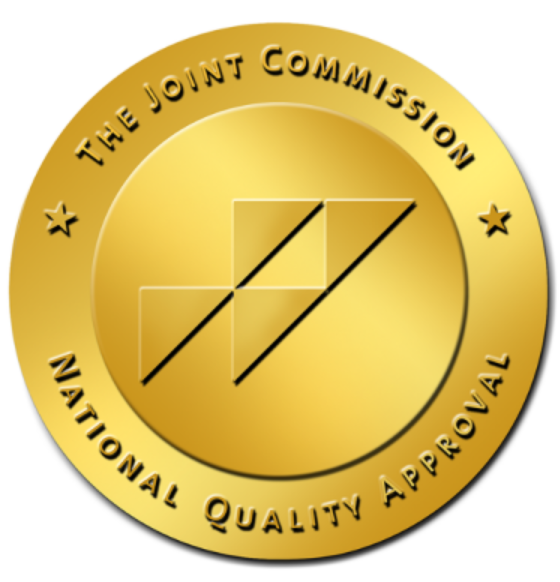Residential Treatment Program
Los Angeles
What Is Residential Treatment?
Residential treatment, also known as inpatient treatment, provides rehabilitation services for patients suffering from substance abuse and addiction. Usually, residential treatment programs will include medically supervised detox and integrated mental health programs.
Residential treatment programs for substance addiction begin with a clinician’s knowledge of the patient’s specific situation. A treatment team will evaluate the mental and medical health and their substance use history to create a custom substance abuse program specifically for the patient.
With the patient’s permission, the treatment staff might also consult with other family members and professionals they’ve been working with to address their specific challenges needs.
Because substance addiction is a disease that affects the mind, body, spirit, an addiction treatment center must bring the patient and treatment team together to provide a holistic healing plan.
Licensed team members at a residential treatment facility will include:
- Clinical case managers
- Continuing care administrators
- Financial advocates
- Fitness and wellness specialists
- Licensed addiction counselors
- Licensed marriage and family therapists
- Nurses
- Nutritionists
- Psychiatrists
- Psychologists
- Physicians
The majority of residential treatment programs are also gender-specific. This helps keep patients focused on recovery, keeps them comfortable talking about sensitive issues in a safe and supporting environment while strengthening their relationships with peers.
Our Levels of Care
Partial Hospitalization
Partial Hospitalization Programs (PHP) are a great option for individuals who want the intensity and structure of an inpatient treatment program with the flexibility of an outpatient program.
Intensive Outpatient
Intensive Outpatient Programs (IOP) provide individuals with a thorough, daily regimen of group and individual therapy that newly sober individuals need in the first few months of recovery.
Outpatient Treatment
Outpatient treatment programs are an effective and very flexible kind of treatment program for individuals struggling with addiction, mental health and impulse control disorders.
Aftercare Planning
Aftercare treatment programs are services that people who graduate from inpatient and outpatient programs are advised to make use of to facilitate long term sobriety after leaving treatment.
What Residential Treatment Offers
Most comprehensive residential treatment centers in California offer:
- Addiction education
- Family or couples counseling
- Follow-up care
- Individual therapy
- Medication management
- Medical detox
- Referrals to support groups
- Skills-building sessions
While some patients can receive satisfactory treatment in an outpatient treatment program, patients with more long-term or severe substance addiction cases may benefit more from California’s residential treatment centers.
However, not all residential treatment centers in California are equal. Someone struggling with an alcohol or drug addiction might not understand what an ideal residential treatment center in California looks like.
How to Choose Residential Treatment Centers in California
Because each patient’s addiction treatment needs differ, there are also variations between residential treatment centers in Los Angeles. It is crucial to ask the appropriate questions to understand if the rehab center you choose is right for you.
Questions to ask when researching rehab treatment centers in Los Angeles include:
What types of addiction treatment programs do you treat?
It is vital to find a rehab center with experience treating your specific substance addiction and other co-occurring disorders. Each substance causes various psychological and physical effects, so it is vital to ask about the treatment center’s experience with treating your specific dependency issues.
What types of addiction therapy is offered?
Most rehab centers will offer individual and group therapy. Past that, there are several different varieties of traditional and nontraditional treatments. Family therapy could be significant to your needs or other holistic treatments like art, music, yoga, or equine therapy. Make sure you learn all the treatment options available to find the best rehab center for you.
Which types of sober living and aftercare options are offered?
Several rehab centers in Los Angeles provide planning and guidance after the patient finished their residential treatment program. Managing an aftercare treatment schedule is crucial in maintaining sobriety. Be sure to ask if your choice rehab center offers an aftercare program or can help you find one
Which licensing and credentials does the chosen rehab facility have?
Because patients require access to experienced treatment professionals, find out the treatment staff’s accreditations along with the facility itself. This is very necessary as substandard rehab centers could fail to help your condition and cost a lot of money.
What are the group therapy programs offered?
Many rehab centers offer 12-step programs like Narcotics Anonymous and Alcoholics Anonymous. Others may provide alternative options like the SMART recovery program. Some rehab centers may even allow them to enroll in a 12-step program or an alternative option with their treatment center.
What are my rehab payment choices?
For those who are insured, find out if the rehab center of choice accepts your insurance. It should be the first stop during the inquiry process. For those who are uninsured, ask if the rehab center offers in house financing options or scholarships. Asking these questions can help narrow options down and make the process of receiving substance addiction treatment less.
What to Expect in a Residential Treatment Program
Following the medical detox process, patients are moved to the residential treatment unit to meet other rehab peers and participate in therapy services and projects.
Residential treatment focuses on assessing the patient’s health to ensure they are physically, psychologically, and emotionally ready to learn about core recovery theories and start practicing recovery teachings. Every day, patients are given a schedule of appointments, treatment projects, and services customized to meet their specific recovery needs and goals.
Residential treatment activities usually include:

- Group therapy sessions to discuss health
- Individual health evaluations and therapy
- Integrated co-occurring mental health treatment with mental health specialists
- Individual mental health evaluation and therapy
- Medical engagements
- Fitness and wellness exercises
- Family therapy support
- Nutritional evaluation
- Spiritual aid
- Experiential and educational workshops
- Proceeding care plans
Substance addiction treatment programs are based on evidence, science, and knowledge of what works best to help patients get become and stay sober.
Some of the evidence-based treatments specialists use include:
- Acceptance Commitment Therapy
- Cognitive Behavioral Therapy
- Contingency Management/Motivational Incentives
- Dialectical Behavior Therapy
- Interpersonal Therapy
- Medication-Assisted Therapies
- Mindfulness-Based Cognitive Therapy
- Motivational Enhancement Therapy
- Motivational Interviewing
- Psychoeducational Groups
- Solution Focused Brief Therapy/Solution Focused Therapy
- Twelve-Step Facilitation

Medical Detox
The physical elements of substance addiction treatment involve clearing the body of its addictive substances and dependence.
When a patient enters a rehab treatment program, one of the first essential tasks is to detoxify the body and get through the challenging and dangerous process of withdrawing from their addictive substances. This is usually performed in a residential treatment facility with a medically supported detox to ease withdrawal symptoms and keep the patient safe.
The withdrawal process will usually involve many discomforts, which can be reduced through medications administered by doctors and the treatment staff. Managing the withdrawal symptoms is a crucial part of a thriving residential treatment program. The patient is more likely to remain in rehab if their withdrawal symptoms are controlled.
When Detox Can Be Dangerous
For those suffering from addiction from substances like opiates, benzodiazepines, and alcohol, the withdrawal process can be dangerous and, at times, life-threatening. Even low-dose benzodiazepines that have been used for an extended period can result in severe symptoms that must be managed under the supervision of medical staff.
They can provide round the clock supervision and administer medications to help reduce the severe withdrawal symptoms. In most situations, those suffering from alcohol, benzodiazepine, or opiate addiction should not attempt to detox cold turkey without help.
Recognizing the Need for Residential Treatment
Patients who benefit most from residential addiction treatment typically fall into one of these three categories:
- People at a higher risk of undergoing alcohol or drug withdrawal
- People who have relapsed
- People who have attempted an intensive outpatient treatment program and were unable to maintain sobriety
Most patients attending residential treatment also struggle with co-occurring mental health disorders like anxiety, depression, or post-traumatic stress disorder (PTSD). These co-occurring disorders must be treated with a dual diagnosis simultaneously to treat both conditions successfully.
Another circumstance to contemplate when deciding between a residential and outpatient treatment program is do you reside in a happy, healthy home where recovery is a top priority. For those that do, outpatient treatment may be a good fit. Otherwise, a residential treatment program will presumably be the most efficient option.
A licensed addiction treatment specialist can help determine all of the different factors and decide the best treatment type needed to help you.
Once the patient is discharged from residential treatment, they’ll receive suggestions for aftercare and continuous recovery support to strengthen sobriety and reduce the chance of relapse. Addiction is a chronic disease, and regaining health requires learning to manage symptoms in a residential treatment program and your home environment.
Benefits of choosing residential treatment centers in California include:
- Residing in a comfortable, safe, and extremely organized atmosphere
- Escape from outside distractions, triggers, and triggers that could fuel substance abuse
- Having addiction treatment specialists available to guarantee health and safety during the detox process and throughout treatment
- Being encircled by a support system of peers and mentors that encourage sobriety
Residential Treatment Programs at Create Recovery Center
If you or a loved one is suffering from substance addiction and are inquiring into residential treatment centers in California, we can help.
Here at Create Recovery Center, we partner with residential treatment centers in California and provide referrals. It isn’t easy to find the best treatment centers in Los Angeles; therefore, obtaining the services of Create Recovery Center can sponsor the specific addiction’s best options.
Addiction is a severe disease that won’t disappear without the help of treatment. Contact us today at Create Recovery Center and allow our team of specialists to refer you to the best residential treatment centers in California.







